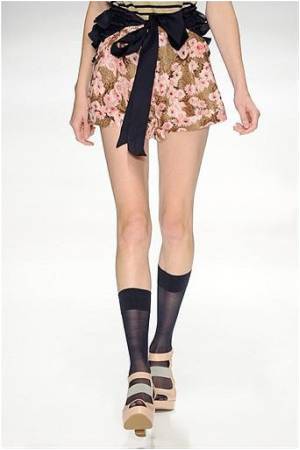In Asia, feet is given more importance than just regular activities like kick a ball, ride a bicycle, dance or even walk on a tightrope etc.

Feet also play a prominent role in Indian wedding ceremonies.
During Hindu weddings in western India, the bride's parents wash the groom's feet. In eastern India, the bride dips her feet in a mixture of milk and a red dye before entering the groom's house, leaving red footprints on the floor.
Hindu and Muslim women decorate their feet with henna in the run-up to weddings, and Hindu brides traditionally wear toe-rings after the wedding to signify their married status.
In Thailand, it is the opposite -- feet are considered fine for walking, but that's about it.
"It is disrespectful to point your feet at seniors or put your feet on a table or step on books," said Suchitra Chongstitvatana, director of the Thai Studies Center at Bangkok's Chulalongkorn University.
Advertisement
Japanese people have traditionally taken off shoes at home.
Advertisement
Others say it's mainly because of sanitation in a country where humidity is relatively high and taking shoes off can help keep feet dry.
Some Japanese car drivers even ask passengers to take off their shoes, while many businessmen change into slippers in the office. There is nothing unusual about leaving shoes at the door of a restaurant when you go in.
For hundreds of years, many women in China were forced to endure the painful practice of foot binding to make their feet smaller -- a key criteria for beauty and marriageability in imperial days.
The barbaric custom was abolished when the Communists took power in 1949. China's modern-day interest in feet centres around massage.
Virtually every street in major Chinese cities boasts one or more foot-massage outlet, an industry that is increasingly popular due to the traditional Chinese belief in the healing qualities of a good foot rubdown.
Practitioners of Chinese traditional medicine say the foot has a multitude of pressure points and that manipulating them -- while loosening up those tired soles -- promotes health in other parts of the body and helps prevent illness.
The China Foot Massage Industry Association said in 2008 that the foot massage sector was raking in one billion yuan ($152 million) every day -- yet another leisure practice benefiting from rising incomes in China.
Many outlets will typically offer a 90-minute foot massage for as little as 80 yuan which includes a herbal foot soak followed by a powerful and often wince-inducing kneading of the soles and toes.
The industry is also marching on in Hong Kong.
Reflexologists believe there is a direct link between feet and all major organs. And if it hurts in one place, it's a telltale sign there could be something wrong elsewhere in the body.
"The toes have a straight link to the head, so when we massage the toes, it's like stimulating the brain," Kwok Siu-ming, a foot masseuse in the city, told AFP as she soothed a customer's mind through his foot.
"We can detect which part of the body is not well through foot massage as clients feel the pain. Foot massage is like doing exercise for your organs."
Traditional Chinese medicine is based on the theory that stress and many external factors can create blockages and imbalances in the body, resulting in disease.
Stimulating acupuncture points is believed to help energy circulate along meridians, stimulating the body's capacity for self-healing.
Chung Nga-lun, 76, has been coming for a weekly foot massage for a decade. "Before I started foot massage I easily got tired and my leg joints were very stiff," he told AFP at a shopping mall foot massage parlour as Kwok massaged his tired toes.
"Now I walk better and my appetite is much better."
Foot masseuse Chun Kwok-bo says first-timers often feel pain, especially if they are nervous.
"We find that many of the customers haven't had enough sleep and some of their lungs and hearts are weak," she said. "When we massage at the corresponding reflexive point, they feel pain.
"It's not like taking medicine -- it hasn't got any side effects. It helps to strengthen your body."
Source-AFP











